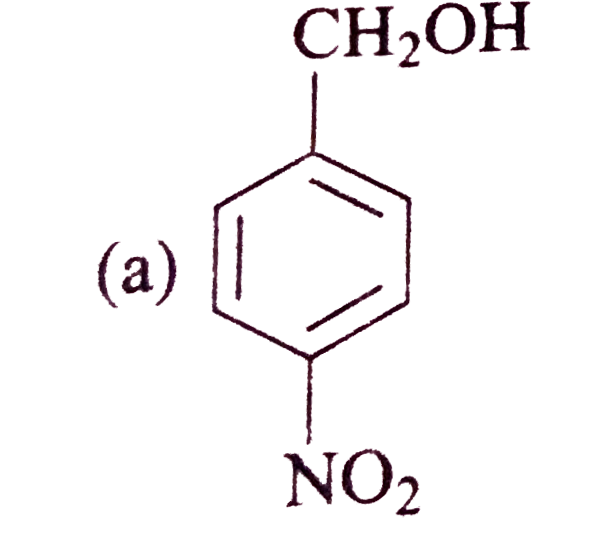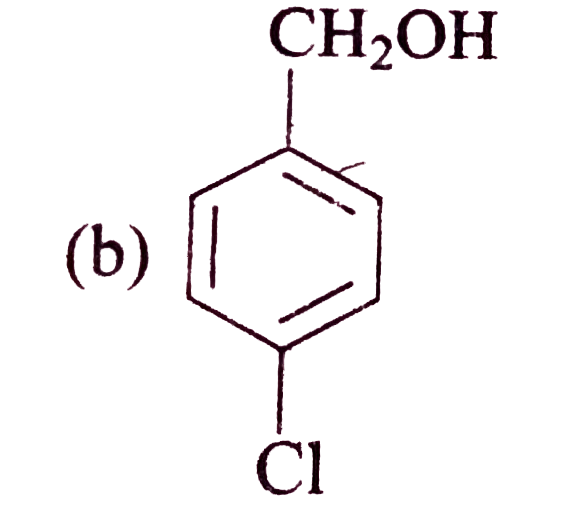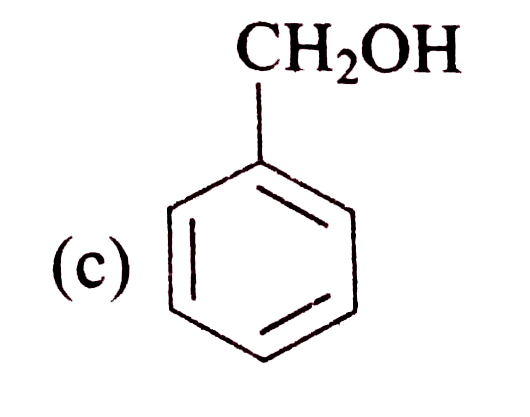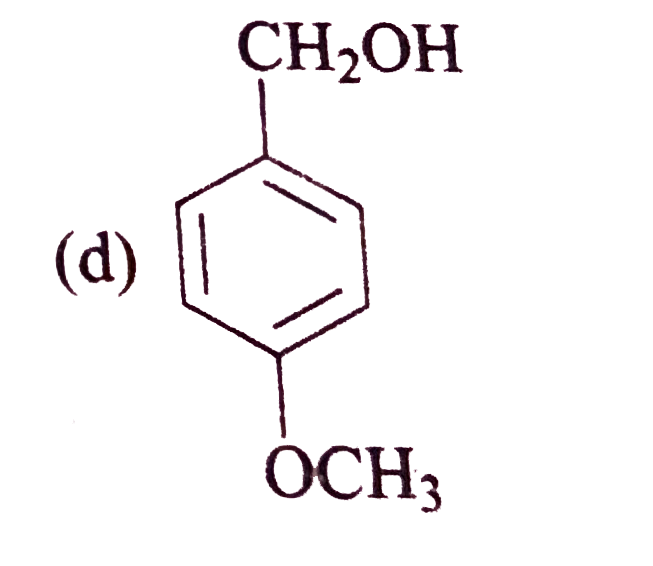Which of the following reacts fastest with conc. HCl ?
(CH3)3C−OH

H2C=CH−CH2OH

The correct Answer is:B
To determine which compound reacts fastest with concentrated HCl, we need to analyze the stability of the carbocations formed from each compound when they react with HCl. The stability of carbocations is a crucial factor in determining the rate of reaction.
1. Identify the Compounds: We have four compounds to consider:
- Tertiary alcohol: (CH3)3COH
- Benzyl alcohol: C6H5CH2OH
- Allyl alcohol: CH2=CHCH2OH
- 2-Phenyl ethanol: C6H5CH2CH2OH
2. Reaction with HCl: When these alcohols react with concentrated HCl, they form oxonium ions (protonated alcohols) which then lose water to form carbocations:
- Tertiary alcohol forms a tertiary carbocation.
- Benzyl alcohol forms a benzyl carbocation.
- Allyl alcohol forms an allyl carbocation.
- 2-Phenyl ethanol forms a primary carbocation.
3. Stability of Carbocations:
- Tertiary Carbocation: Very stable due to hyperconjugation and inductive effects from three alkyl groups.
- Benzyl Carbocation: Very stable due to resonance stabilization from the adjacent benzene ring.
- Allyl Carbocation: Moderately stable due to resonance but less than benzyl.
- Primary Carbocation: Least stable as it has no alkyl groups to stabilize the positive charge.
4. Comparison of Stability:
- The order of stability of the carbocations formed is:
- Benzyl carbocation > Tertiary carbocation > Allyl carbocation > Primary carbocation.
5. Conclusion: Since the benzyl carbocation is the most stable, the compound that reacts fastest with concentrated HCl is the benzyl alcohol C6H5CH2OH.
Final Answer:
The compound that reacts fastest with concentrated HCl is Benzyl alcohol.
- Tertiary alcohol: (CH3)3COH
- Benzyl alcohol: C6H5CH2OH
- Allyl alcohol: CH2=CHCH2OH
- 2-Phenyl ethanol: C6H5CH2CH2OH
- Tertiary alcohol forms a tertiary carbocation.
- Benzyl alcohol forms a benzyl carbocation.
- Allyl alcohol forms an allyl carbocation.
- 2-Phenyl ethanol forms a primary carbocation.
- Tertiary Carbocation: Very stable due to hyperconjugation and inductive effects from three alkyl groups.
- Benzyl Carbocation: Very stable due to resonance stabilization from the adjacent benzene ring.
- Allyl Carbocation: Moderately stable due to resonance but less than benzyl.
- Primary Carbocation: Least stable as it has no alkyl groups to stabilize the positive charge.
- The order of stability of the carbocations formed is:
- Benzyl carbocation > Tertiary carbocation > Allyl carbocation > Primary carbocation.
The compound that reacts fastest with concentrated HCl is Benzyl alcohol.
Topper's Solved these Questions
- ALCOHOLS, PHENOLS AND ETHERSBOOK - OP TANDONCHAPTER - ALCOHOLS, PHENOLS AND ETHERSEXERCISE - (C )ETHERS
90 Videos
- ALCOHOLS, PHENOLS AND ETHERSBOOK - OP TANDONCHAPTER - ALCOHOLS, PHENOLS AND ETHERSEXERCISE - OBJECTIVE QUESTIONS (LEVEL-B)
30 Videos
- ALCOHOLS, PHENOLS AND ETHERSBOOK - OP TANDONCHAPTER - ALCOHOLS, PHENOLS AND ETHERSEXERCISE - BRAI STORMING PROBLEMS
32 Videos
- ALDEHYDES AND KETONES BOOK - OP TANDONCHAPTER - ALDEHYDES AND KETONES EXERCISE - SINGLE INTEGER ANSWER TYPE QUESTIONS
10 Videos
Similar Questions
Knowledge Check
Which of the following reacts fastest with HBr?
A B
B C
C D
D
Which of the following reacts fastest with HBr?
A B
B C
C D
D
HBr reacts fastest with
A2-methyl propan-2-olBpropanol -1Cpropanol-2D2-methyl propanol-1
